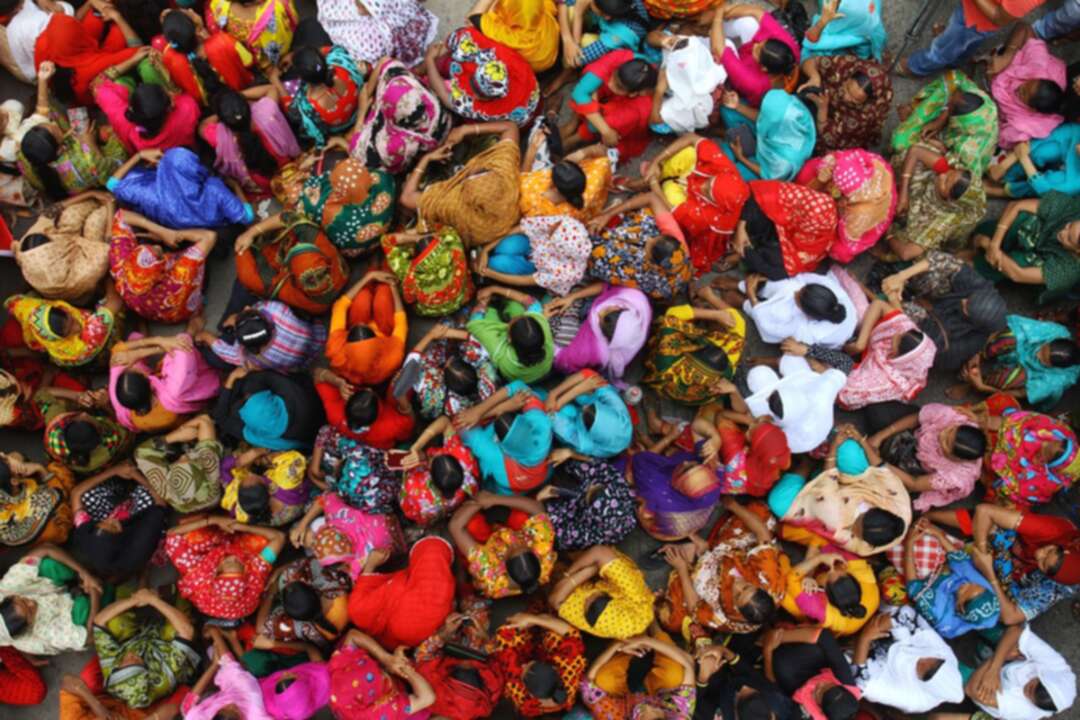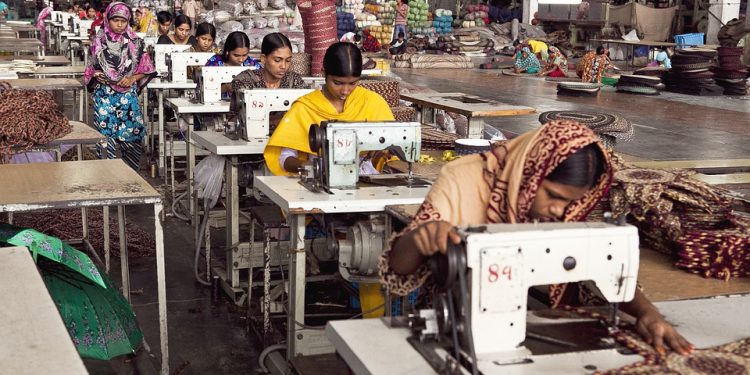-
Jordan becomes a top destination for skilled garment female workers from Bangladesh

The Arab News reported that officials in Dhaka say, Jordan has become a top destination for skilled garment workers from Bangladesh, as hundreds of Bangladeshi women find employment in the kingdom’s clothing sector every week.
According to the Arab News, Bangladesh started exporting skilled garment workers to Jordan in 2010 through a government agreement. Jordan’s garment industry has expanded rapidly in the past few years, and two thirds of Bangladeshi female workers in the kingdom now find employment at its clothing factories.
It said that in other Middle Eastern countries, Bangladeshi women work mostly as domestic helpers.
According to data from the Bangladeshi Embassy in Amman, the Jordanian garment sector currently employs 40,000 Bangladeshi women.
“Every week we recruit around 500 female migrants for Jordan’s garment sector,” Mohammad Abdus Sobhan, company secretary of the state-run Bangladesh Overseas Employment and Services, told Arab News. “It’s a very good opportunity for Bangladeshi female migrants to earn more as a skilled workforce with much more dignity.”

“All they need to have is some working experience in the local garment factories,” he said, adding that average monthly salary of Bangladeshi garment workers in Jordan is between $260 and $360 and that all of them initially receive two-year contracts.
Read more: Canada to appeal against compensation order for indigenous children
The demand for Bangladeshi labor has been on the rise since the lifting of coronavirus restrictions, Sobhan said. In 2020, the kingdom accepted only about 3,700 garment workers from Bangladesh, but this year up to Sept. 30 more than 12,300 had already left for the Middle Eastern country.
Jordanian employers bear all the costs of processing working permits, travel, accommodation and healthcare.
Bangladesh Nari Sromik Kendro (BNSK), a rights organization for migrant workers, has been conducting awareness campaigns in the country’s rural areas about work opportunities abroad. It has found that workers are interested in joining Jordanian garment factories due to their employment model.
BNSK executive director Sumaiya Islam said: “Our female migrants are very interested in taking the opportunity since it’s an employer pay model, where the employer bears all costs to have the migrants’ services."
Workers themselves say higher incomes are also a factor.
“My elder sister joined a garment factory in Jordan three years ago. The working environment and salary structure is much better than in Bangladesh,” said Masuma Begum, a 33-year-old single mother of two who is scheduled to fly to Jordan next month. “So, I also decided to join my sister.”
Read more: US intelligence agencies: Origins of Covid-19 may never be known
Kulsum Akter, 27, another garment worker who is preparing to work in Jordan, said the job will help her to provide for her whole five-member family.
“The job in Jordan will double my income,” she said. “Now I will provide better education for my seven-year-old son.”
BRAC, the largest development organization in Bangladesh, encourages the authorities to do more to tap into the Jordanian market.
BRAC’s head of migration program Shariful Hasan said: “It’s a very good opportunity for our female migrants since they earn more without any incidents of abuse."
“We need to make the people aware at the grassroots level, so that the intended migrants can make an informed decision about their opportunities in the overseas market.”
Dhaka’s ambassador to Amman, Nahida Sobhan, said the embassy is regularly in touch with Jordanian authorities, the Jordan Chamber of Commerce, the Jordan Garments, Accessories and Textiles Exporters Association, and individual factory owners to facilitate the employment of Bangladeshi workers.
“We are maintaining regular contact with Jordan’s Ministry of Labor and other government agencies to bring more Bangladeshi workers,” she said. “We have regular interaction with the business community.”
Source: arabnews
You May Also Like
Popular Posts
Caricature
BENEFIT Sponsors BuildHer...
- April 23, 2025
BENEFIT, the Kingdom’s innovator and leading company in Fintech and electronic financial transactions service, has sponsored the BuildHer CityHack 2025 Hackathon, a two-day event spearheaded by the College of Engineering and Technology at the Royal University for Women (RUW).
Aimed at secondary school students, the event brought together a distinguished group of academic professionals and technology experts to mentor and inspire young participants.
More than 100 high school students from across the Kingdom of Bahrain took part in the hackathon, which featured an intensive programme of training workshops and hands-on sessions. These activities were tailored to enhance participants’ critical thinking, collaborative problem-solving, and team-building capabilities, while also encouraging the development of practical and sustainable solutions to contemporary challenges using modern technological tools.
BENEFIT’s Chief Executive Mr. Abdulwahed AlJanahi, commented: “Our support for this educational hackathon reflects our long-term strategic vision to nurture the talents of emerging national youth and empower the next generation of accomplished female leaders in technology. By fostering creativity and innovation, we aim to contribute meaningfully to Bahrain’s comprehensive development goals and align with the aspirations outlined in the Kingdom’s Vision 2030—an ambition in which BENEFIT plays a central role.”
Professor Riyadh Yousif Hamzah, President of the Royal University for Women, commented: “This initiative reflects our commitment to advancing women in STEM fields. We're cultivating a generation of creative, solution-driven female leaders who will drive national development. Our partnership with BENEFIT exemplifies the powerful synergy between academia and private sector in supporting educational innovation.”
Hanan Abdulla Hasan, Senior Manager, PR & Communication at BENEFIT, said: “We are honoured to collaborate with RUW in supporting this remarkable technology-focused event. It highlights our commitment to social responsibility, and our ongoing efforts to enhance the digital and innovation capabilities of young Bahraini women and foster their ability to harness technological tools in the service of a smarter, more sustainable future.”
For his part, Dr. Humam ElAgha, Acting Dean of the College of Engineering and Technology at the University, said: “BuildHer CityHack 2025 embodies our hands-on approach to education. By tackling real-world problems through creative thinking and sustainable solutions, we're preparing women to thrive in the knowledge economy – a cornerstone of the University's vision.”
opinion
Report
ads
Newsletter
Subscribe to our mailing list to get the new updates!






















